Microsoft says people are too tired to work but that AI can help
AI is causing concerns about job security, but many still want to shift their workload to tools powered by artificial intelligence.
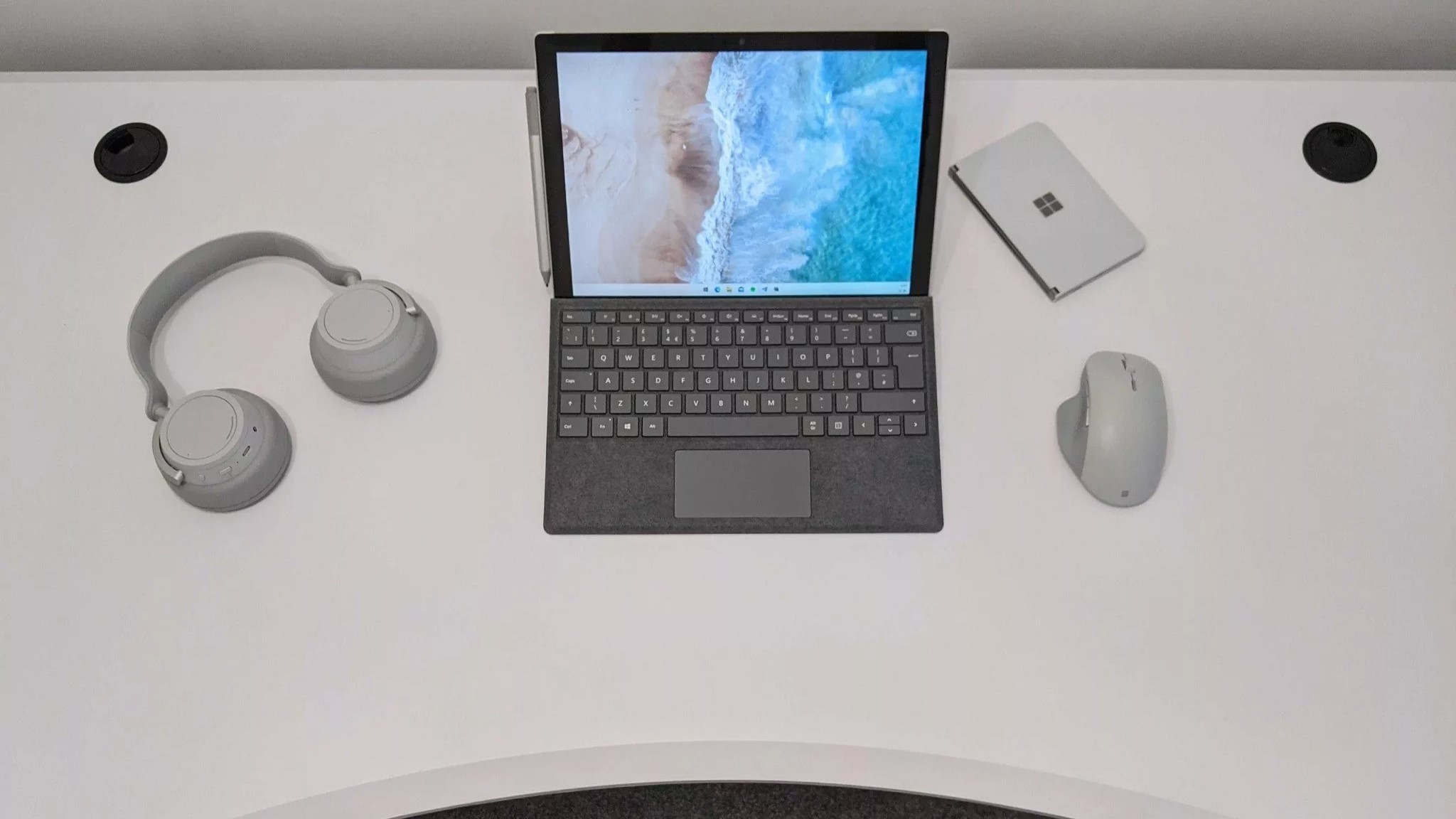
What you need to know
- Microsoft shared the results of its 2023 Annual Work Trend Index today.
- The report sheds light on how workers view artificial intelligence and how AI affects productivity.
- Almost two in three polled participants said they do not have enough time and energy to do their job.
- 49% of those polled are concerned that AI will affect their job security.
Each year Microsoft shares insights about the workplace through its Annual Work Trend Index. The company just shared data from its 2023 report that indicates how professionals feel about artificial intelligence in the workplace. Data comes from 31,000 polled participants across 31 countries as well as analysis of "trillions of aggregated productivity signals in Microsoft 365, along with labor market trends on LinkedIn," according to Microsoft.
These AI-related insights were shared alongside the announcement of new Microsoft 365 Copilot capabilities that rely on artificial intelligence and the option to pay for early access to AI copilot features in Office.
Microsoft marked three insights as key pieces of information: "digital debt costing us innovation," "a new AI-employee alliance," and "Every employee [needing] AI aptitude."
The Work Trend Index shows that workers are overwhelmed by information, such as emails and chats. 62% of professionals say they spend too much time looking for information, communicating, and coordinating rather than innovating and working together with others. Almost two out of every three employees said they don't have enough time and energy to do their jobs.
Artificial intelligence appears to have a mixed role when it comes to addressing these issues. Almost half of the people polled (49%) said they had concerns about job security due to AI. Despite that fact, 70% of employees said they would like AI to do "as much work as possible" to "lessen their workloads," according to Microsoft.
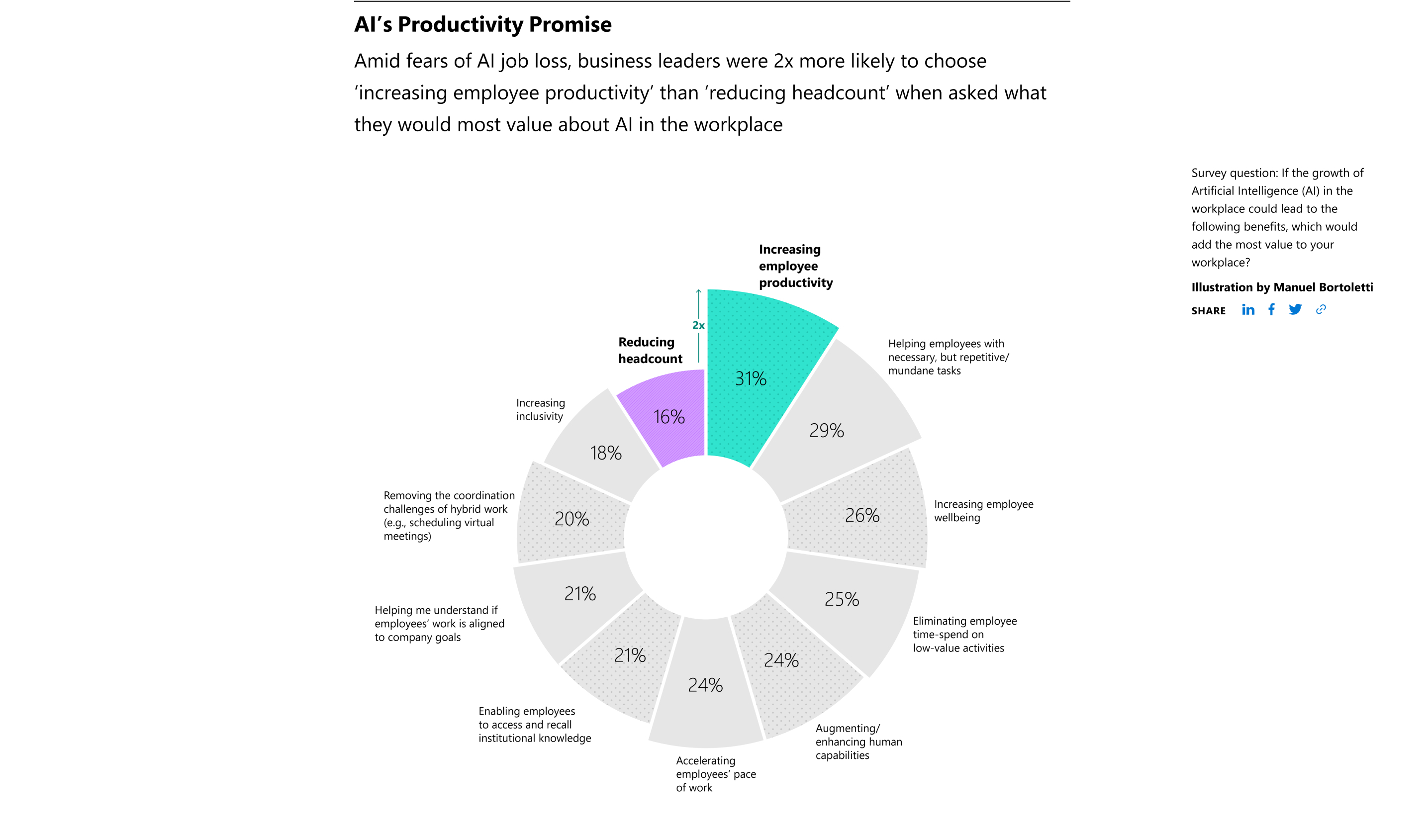
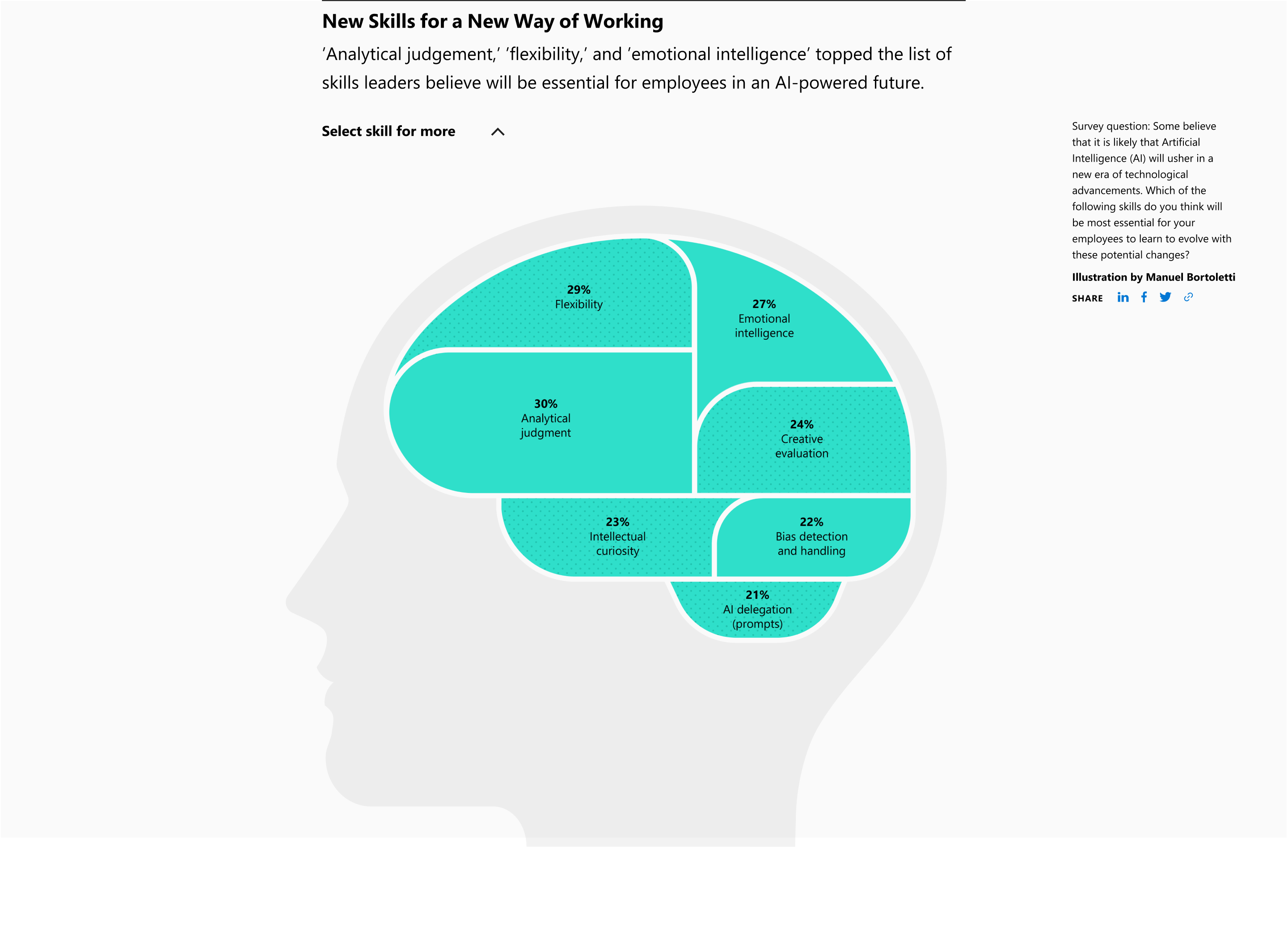
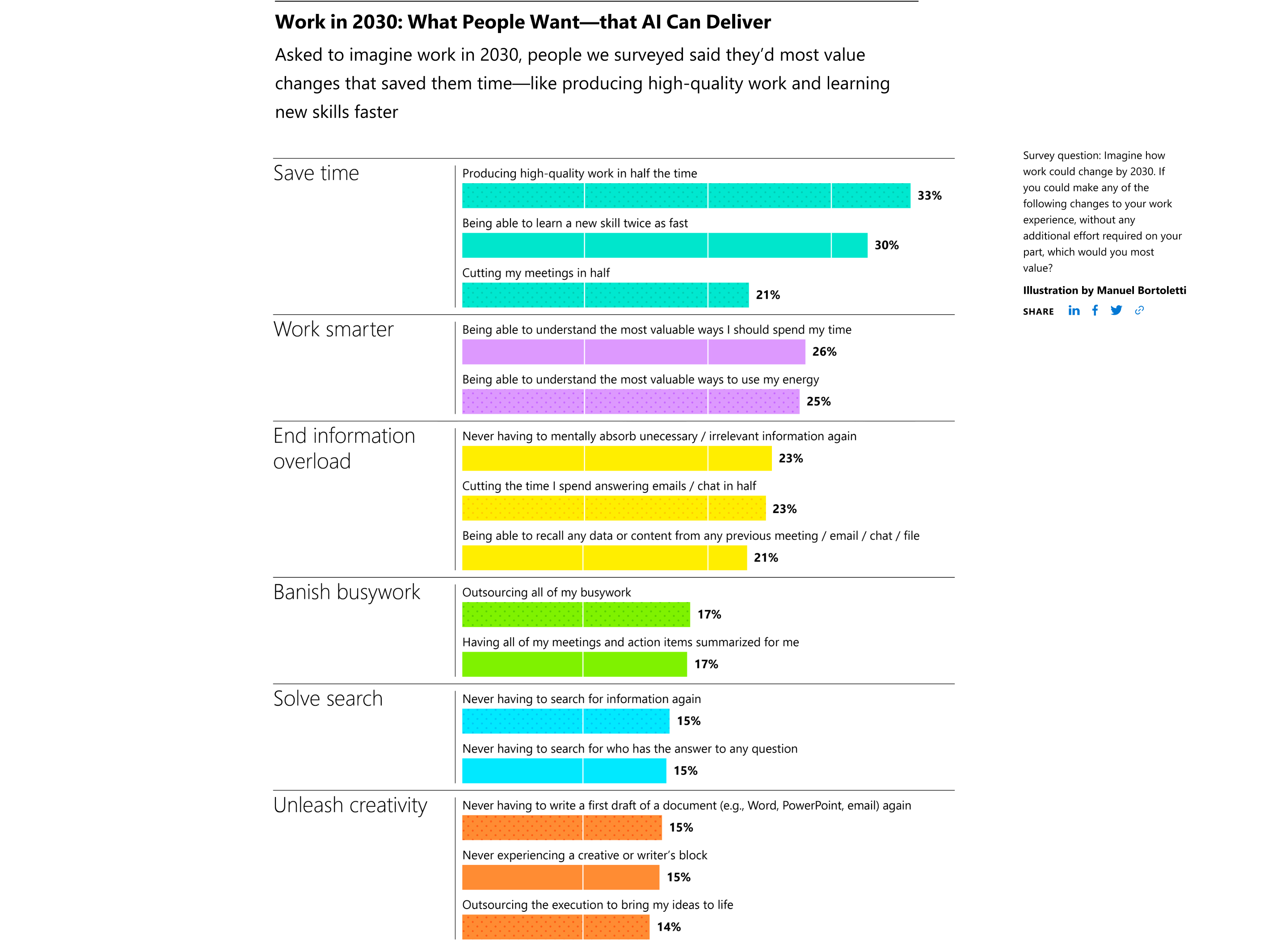
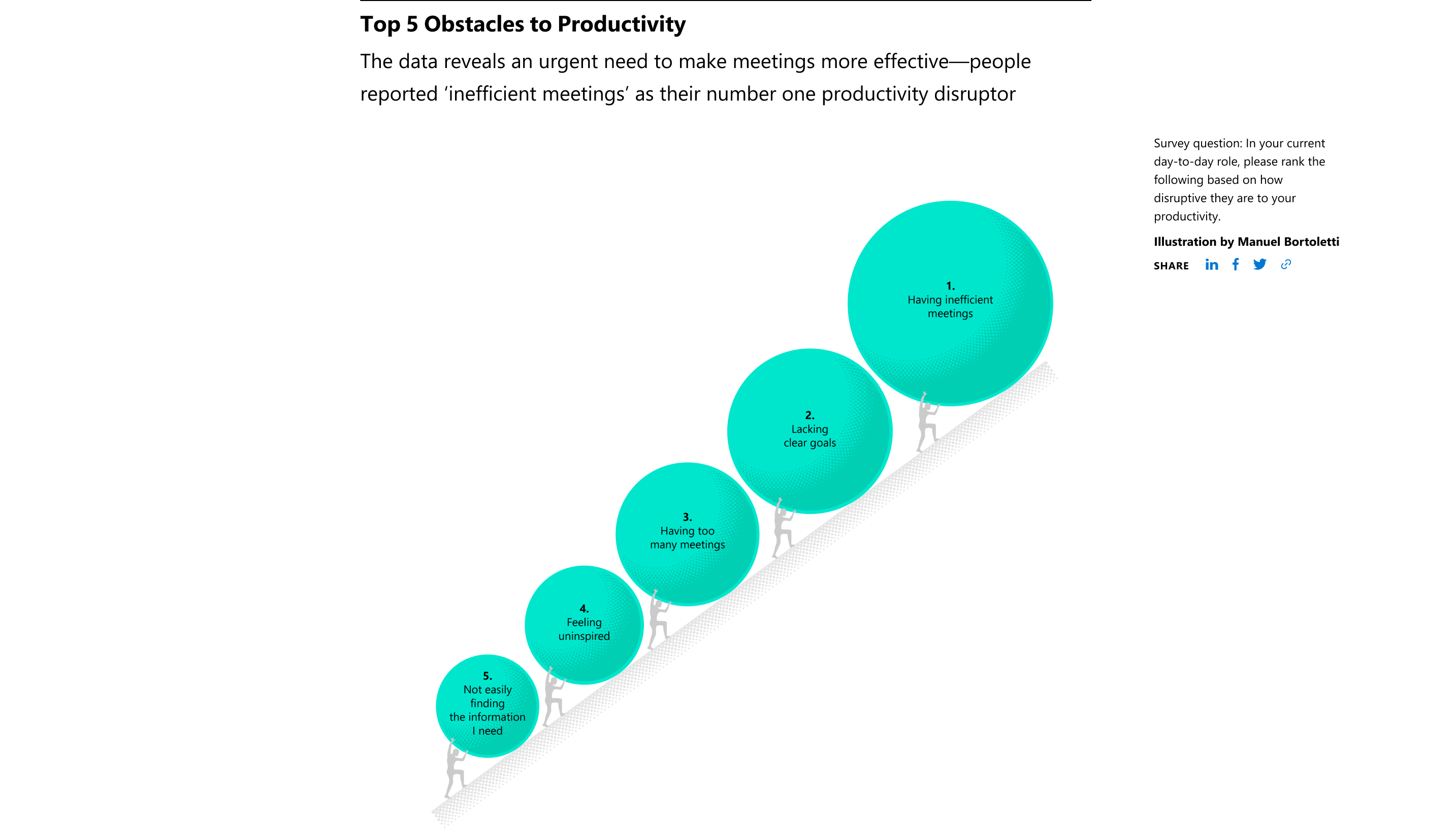
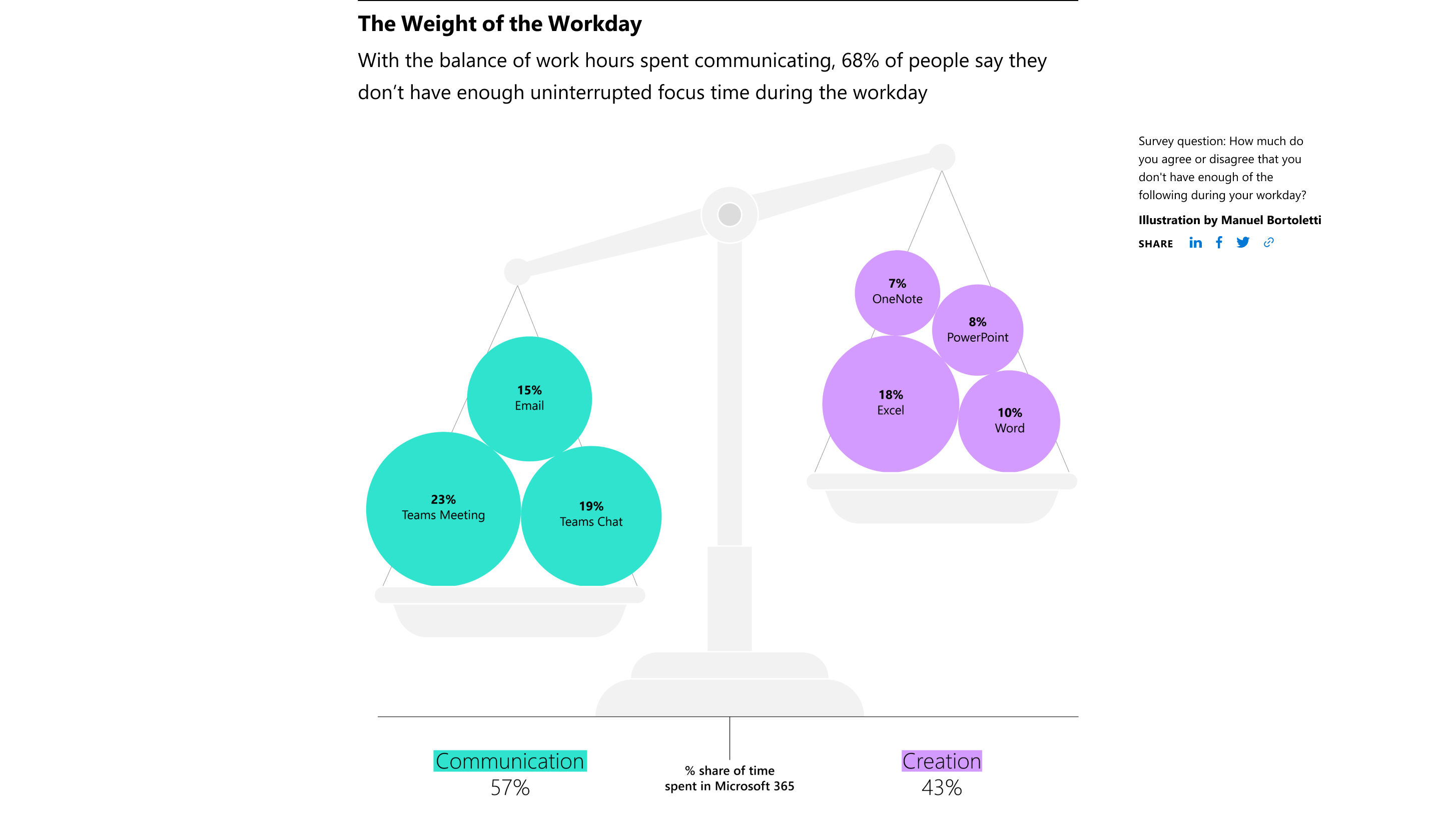
Managers seem to largely view AI as a tool to enhance the performance and experiences of employees rather than a way to replace people. Microsoft's data states managers are twice as likely to want to "empower people with AI" instead of replacing them.
With AI becoming more important, the demand for skills related to the technology could become essential. 82% of leaders that Microsoft received feedback from expect that employees will need new skills that revolve around AI. Microsoft has seen a 79% year-over-year increase in how many LinkedIn job listings in the United States mention "GPT" or "GAI" (generative artificial intelligence).
Get the Windows Central Newsletter
All the latest news, reviews, and guides for Windows and Xbox diehards.
If you're looking to get ahead in the workplace by learning about AI, make sure to check out our guide on how to get started with Bing Chat on Microsoft Edge and our roundup of the best AI image creators. Also keep an eye out for more of our coverage about Microsoft 365 Copilot.

Sean Endicott is a tech journalist at Windows Central, specializing in Windows, Microsoft software, AI, and PCs. He's covered major launches, from Windows 10 and 11 to the rise of AI tools like ChatGPT. Sean's journey began with the Lumia 740, leading to strong ties with app developers. Outside writing, he coaches American football, utilizing Microsoft services to manage his team. He studied broadcast journalism at Nottingham Trent University and is active on X @SeanEndicott_ and Threads @sean_endicott_.
